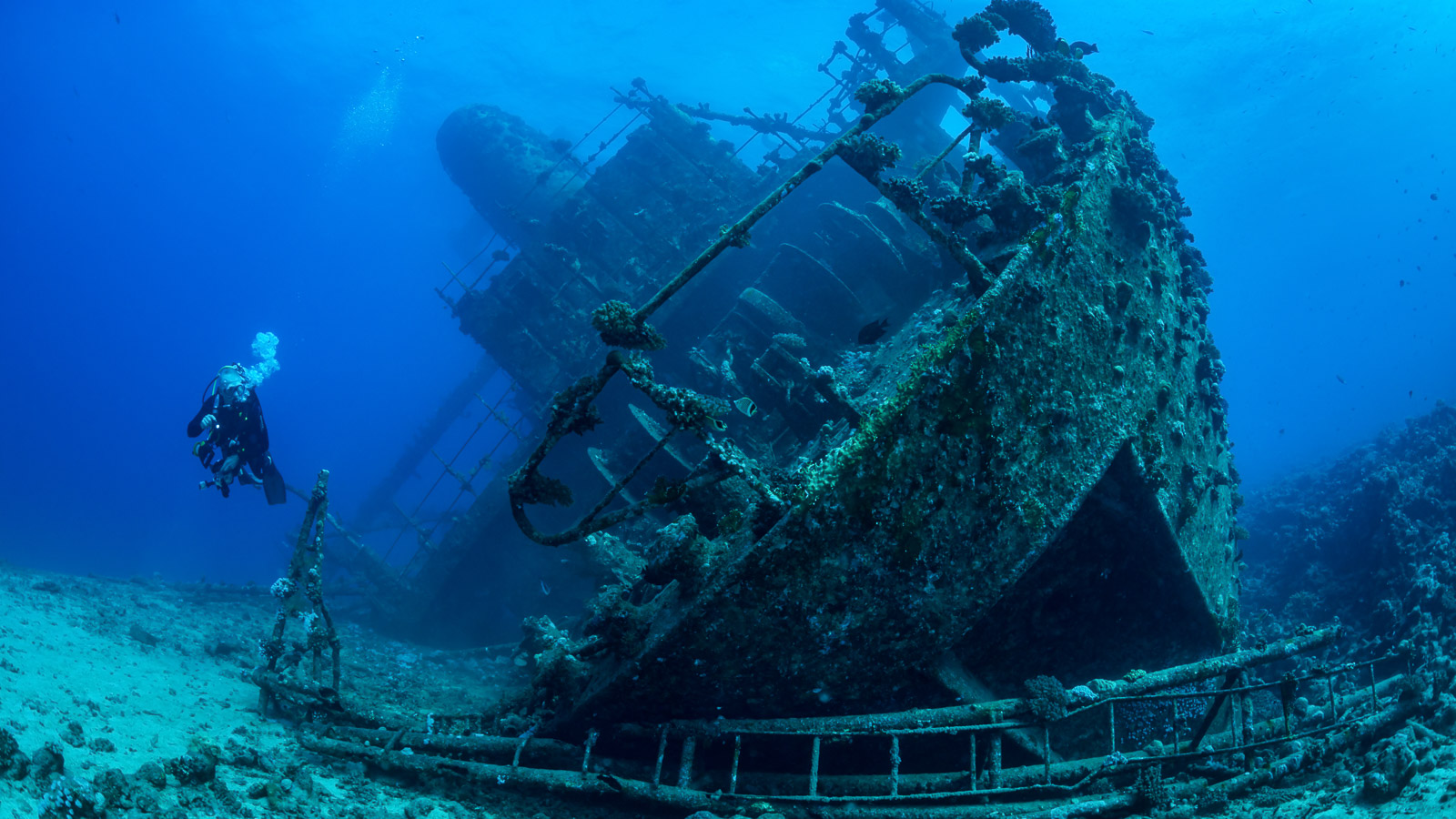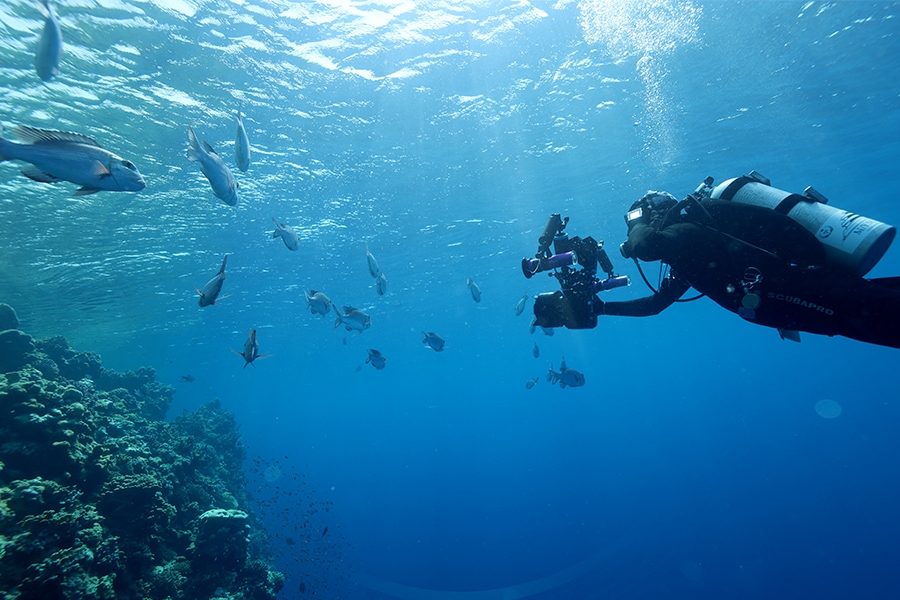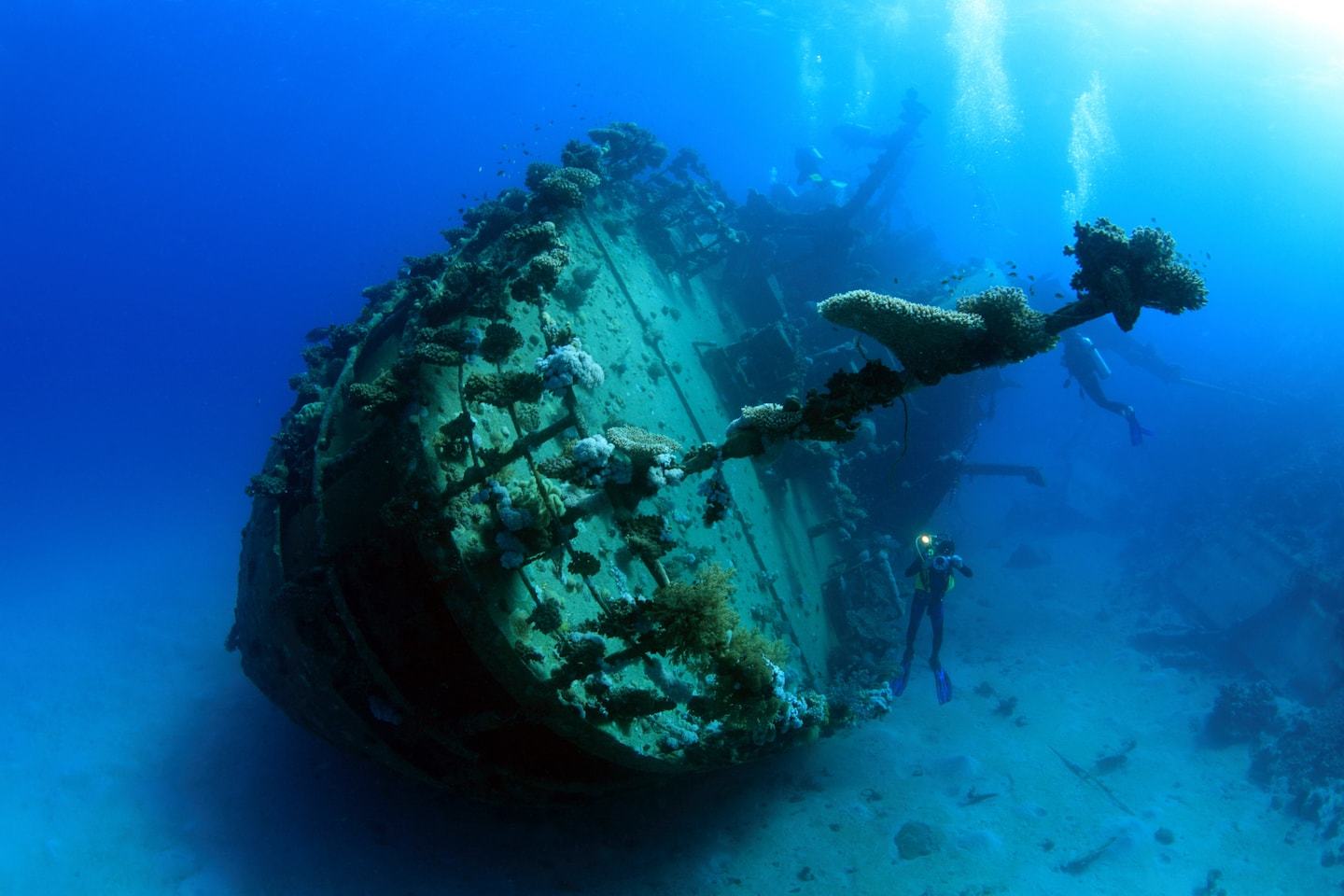Scuba Diving in Egypt: Discover the Underwater World of the Red Sea

I. Introduction to Scuba Diving in Egypt
Egypt is renowned for its ancient wonders and is a popular destination for scuba diving enthusiasts. The crystal-clear waters of the Red Sea are home to a diverse and vibrant underwater ecosystem that attracts divers worldwide. Whether you're a beginner or an experienced diver, Egypt offers a range of dive sites catering to all expertise levels.
The popularity of scuba diving in Egypt
Scuba diving has become increasingly popular in Egypt due to its accessibility and abundant marine life in the Red Sea. The warm waters, favourable diving conditions, and stunning coral reefs make it an ideal destination for underwater exploration. Some of the reasons why scuba diving in Egypt is so popular:
-
Accessibility: Egypt is easily accessible from many international airports, making it a convenient destination for divers worldwide.
-
Diverse Marine Life: The Red Sea is teeming with a wide variety of marine life, including colourful coral reefs, tropical fish, dolphins, sea turtles, and even the occasional whale shark.
-
Spectacular Coral Reefs: The underwater landscapes in Egypt are breathtaking, with intricate coral formations that are home to a vast array of marine species. The coral reefs of the Red Sea are considered some of the most beautiful in the world.
-
Clear Visibility: The crystal-clear waters of the Red Sea provide excellent visibility, allowing divers to fully appreciate the vibrant colours and intricate details of the underwater world.
-
Suitable for All Levels: Egypt offers a range of dive sites that cater to divers of all levels, from shallow reefs suitable for beginners to challenging drift dives and deep wreck dives for more experienced divers.
The breathtaking underwater world of the Red Sea
The Red Sea is a paradise for scuba divers, offering a kaleidoscope of colours and diverse marine life. Some of the highlights of diving in the Red Sea include:
-
Vibrant Coral Reefs: The Red Sea is home to vibrant and healthy coral reefs with an incredible variety of hard and soft corals. These reefs shelter many marine species, including reef fish, rays, and even small sharks.
-
Wreck Diving: The Red Sea is dotted with numerous shipwrecks that have become artificial reefs and havens for marine life. Famous wreck dive sites include the SS Thistlegorm, a World War II cargo ship, and the SS Dunraven, a British steamship.
-
Marine Encounters: Divers in the Red Sea may have the opportunity to encounter a range of marine creatures, including dolphins, sea turtles, moray eels, and schools of colourful fish.
-
Dive Sites: Egypt offers a wide selection of dive sites along its Red Sea coastline. Popular locations include Ras Mohammed National Park, Tiran Island, and the Brothers Islands, known for their dramatic drop-offs and abundant marine life.
Exploring the underwater world of the Red Sea is a magical experience that should not be missed. Whether you're an experienced diver or a beginner, Egypt provides ample opportunities to discover the beauty and wonders of the deep.

II. Top Dive Sites in Egypt
Egypt's Red Sea is a haven for scuba diving enthusiasts, offering an incredible diversity of marine life and fascinating underwater landscapes. Here are some of the top dive sites in Egypt that should not be missed:
Ras Mohammed National Park
Located at the southern tip of the Sinai Peninsula, Ras Mohammed National Park is one of Egypt's most famous dive sites. It is a marine protected area known for its vibrant coral reefs, steep walls, and abundant marine life. Divers can encounter a variety of species, including tropical fish, sharks, turtles, and rays. The park offers several dive sites, such as Shark Reef and Yolanda Reef, known for their stunning underwater scenery and excellent visibility.
Tiran Island
Situated in the northern part of the Red Sea, Tiran Island is another popular dive destination in Egypt. It is known for its dramatic drop-offs and strong currents, attracting experienced divers seeking thrilling underwater adventures. Tiran Island is home to several dive sites, including Jackson Reef, Woodhouse Reef, and Thomas Reef, where divers can explore coral gardens, encounter large schools of fish, and spot pelagic species like barracudas and sharks.
The Brothers Islands
For experienced divers looking for more challenging dives, The Brothers Islands are an excellent choice. Located in the middle of the Red Sea, these two small islands offer stunning underwater landscapes, including steep walls, pinnacles, and coral gardens. The Brothers Islands are famous for encountering large pelagic species, such as hammerhead, thresher, and oceanic whitetip sharks. Divers can also explore several wreck sites, including the wrecks of the Aida and Namibia.
Abu Nuhas Shipwreck
The Abu Nuhas Shipwreck is a must-visit dive site for wreck enthusiasts. Located near the Gulf of Suez, this site is known as the "Shipwreck Graveyard" due to the number of sunken vessels in the area. Divers can explore several wrecks, including the Carnatic, Giannis D, and Chrisoula K, which are covered in colourful corals and teeming with marine life. The Abu Nuhas Shipwreck offers unique opportunities for underwater photography and historical exploration.
These are just a few incredible dive sites in Egypt's Red Sea. Whether you are a beginner or an experienced diver, there is something for everyone to discover in the underwater world of Egypt. So grab your diving gear and prepare for an unforgettable Red Sea adventure!

III. Marine Life in the Red Sea
Scuba diving in Egypt's Red Sea offers an incredible opportunity to explore the vibrant and diverse underwater world. Here are some highlights of the marine life you can encounter during your dives:
Colourful coral reefs
The Red Sea is home to some of the most mesmerizing coral reefs in the world. These underwater ecosystems are teeming with life and boast a stunning array of vibrant colours. You will be amazed by the intricate formations and the biodiversity they support, from hard corals to soft corals. Diving among these reefs feels like entering a fantastical underwater garden.
Diverse fish species
The Red Sea is a haven for a wide variety of fish species. You can expect to encounter schools of colourful reef fish, such as angelfish, butterflyfish, and parrotfish. Keep an eye out for the elusive clownfish hiding among the anemones. The Red Sea is known for its large pelagic fish, including barracudas, tuna, and groupers. These majestic creatures make for an awe-inspiring sight during your dives.
Encounters with dolphins and sharks
Diving in the Red Sea allows one to encounter some of the ocean's most fascinating creatures, including dolphins and sharks. Dolphins are often seen swimming and playing in the Red Sea's crystal-clear waters, and swimming alongside these intelligent creatures is a truly magical experience. For the more adventurous divers, the Red Sea is also home to various species of sharks, including reef sharks and hammerhead sharks. These encounters are sure to get your heart racing and create unforgettable memories.
The marine life in the Red Sea is a testament to the region's ecological richness and conservation efforts. Snorkelling or scuba diving in this underwater paradise allows you to witness firsthand the beauty and diversity of the Red Sea's underwater world.
*Note: Scuba diving activities should always be conducted with proper training and guidance to ensure safety for both divers and marine life.

IV. Scuba Diving Centers and Facilities
When it comes to scuba diving in Egypt, there are several professional dive centres and facilities that cater to both beginners and experienced divers. Here are some key details about scuba diving centres in Egypt:
Professional dive centres in Egypt
1. Red Sea Diving Safari: This renowned dive centre offers a range of diving experiences, from shallow reefs to deep wrecks. With multiple locations along the Red Sea coast, they provide access to some of the best dive sites in Egypt.
2. Emperor Divers: With centres in popular diving destinations like Sharm El Sheikh and Marsa Alam, Emperor Divers offers a wide range of diving courses and packages. They have experienced instructors who ensure safe and enjoyable dives.
3. Sinai Divers: Based in Dahab, Sinai Divers is known for its experienced guides and personalized service. They offer a variety of dive trips, including shore dives and boat dives, catering to divers of all levels.
4. Camel Dive Club: Located in Sharm El Sheikh, Camel Dive Club has been operating for over 30 years. They have a PADI 5-star dive centre and offer a range of courses, from beginners to advanced levels.
5. Aquarius Diving Club: In Hurghada, it is known for its professional staff and well-maintained equipment. They offer dive trips to various sites, including coral reefs, shipwrecks, and underwater caves.
Equipment rental and certifications
Most dive centres in Egypt provide equipment rental services, allowing divers to explore the underwater world without the need to bring their gear. Here are some common equipment available for rent:
- Wetsuit
- BCD (Buoyancy Control Device)
- Regulator
- Mask and snorkel
- Fins
It's important to note that some dive centres may require divers to be certified before participating in certain dives. PADI (Professional Association of Diving Instructors) is the most widely recognised certification agency. Obtaining a certification is a great way to enhance your diving skills and increase your confidence underwater. It also allows you to explore more advanced dive sites and gain access to exclusive diving opportunities.
Diving courses are typically available at dive centres, ranging from beginner courses for those new to diving to advanced courses for experienced divers looking to expand their knowledge and skills. These courses cover essential topics such as dive theory, safety procedures, and practical skills.
Whether you are a beginner or an experienced diver, Egypt offers many opportunities to explore the majestic underwater world of the Red Sea. With professional dive centres, well-maintained equipment, and a range of certifications available, you can embark on a thrilling diving adventure in this beautiful destination. Don't forget to check with the dive centres for specific equipment rental options and certification requirements before planning your dive trip to Egypt.
V. Best Time to Dive in Egypt
Weather and Water Conditions
Egypt, particularly the Red Sea region, offers yearly scuba diving opportunities. However, the best time to dive in Egypt may vary depending on your preferences and the type of marine life you wish to encounter. Here are some key factors to consider when planning your diving trip:
1. Water Temperature: The Red Sea's water temperature ranges between 22°C (72°F) and 29°C (84°F) throughout the year. This warm water allows divers to enjoy comfortable diving experiences without the need for thick wetsuits. However, the water temperature can be slightly cooler during the winter months.
2. Visibility: The Red Sea is known for its exceptional visibility, often reaching up to 30 meters (100 feet). Clear water allows divers to admire the vibrant coral reefs and easily spot various marine species.
3. Currents: The Red Sea experiences mild to moderate currents, varying depending on the dive site. Some dive sites, such as the famous Thistlegorm wreck, may have stronger currents. It is essential to consult with experienced dive operators or instructors who can guide you to suitable dive sites based on your skill level.
Peak Seasons for Diving
While scuba diving is possible year-round in Egypt, certain peak seasons attract divers worldwide. Here are the two main peak seasons for diving:
1. Spring (March to May): Spring is an excellent time to dive in Egypt due to its mild weather and calm seas. During this season, the water temperature is pleasant, and there is less chance of encountering strong winds or storms.
2. Fall (September to November): Fall is another popular season for diving in Egypt. The water is still warm from summer, and visibility remains excellent. The Red Sea is generally calm during this time, offering ideal diving conditions.
It's important to note that while these seasons are considered the peak times for diving, Egypt's Red Sea region offers fantastic underwater experiences all year round. The decision of when to dive ultimately depends on your preferences and availability.
For more information about scuba diving in Egypt and the various dive sites available, you can visit this Wikipedia page.

VI. Safety Tips and Regulations
Safety should always be a top priority regarding scuba diving in Egypt's Red Sea. Here are some essential safety tips and regulations to keep in mind for a smooth and secure diving experience:
Diving safety guidelines
1. Get certified: Before diving, ensure you have the necessary scuba diving certification from a reputable organization. This certification ensures you have received proper training in diving techniques, safety procedures, and equipment usage.
2. Dive within your limits: Always dive within your personal limits and comfort zone. Don't push yourself to dive deeper or longer than you are trained for or feel comfortable doing.
3. Plan your dives: Plan your dives, including depth, time, and entry and exit points. Use a dive table or computer to calculate your dive profiles and ensure you do not exceed safe limits.
4. Buddy system: Always dive with a buddy. The buddy system ensures that you have someone watching your back and can assist in any emergencies or difficulties.
5. Check your equipment: Before every dive, check your equipment to ensure that it is in proper working condition. Inspect your regulator, BCD (buoyancy control device), dive computer, and any other gear you use.
6. Equalize and ascend slowly: Equalize your ears early and often during descent to allow your body to adjust to pressure changes. Ascend at a rate of 18 meters (60 feet) per minute or slower to avoid decompression sickness.
7. Follow dive plans and instructions: Stick to your dive plans and listen to instructions given by dive professionals or guides. They are familiar with the dive sites and can provide valuable information on local conditions and potential hazards.
Conservation efforts and marine protection
Egypt has implemented several initiatives to protect its marine ecosystems and promote conservation efforts in the Red Sea. Here are some key conservation measures in place:
1. Marine protected areas: Egypt has established several marine protected areas (MPAs) in the Red Sea, such as Ras Mohammed National Park and the Brothers Islands Marine Park. These protected areas aim to preserve biodiversity and limit human impact on fragile marine ecosystems.
2. Dive site regulations: At popular dive sites, certain regulations are in place to protect marine life and prevent damage to coral reefs. These regulations may include restrictions on touching or feeding marine animals, anchoring, or collecting shells or coral.
3. Environmental awareness campaigns: Government organizations, dive operators, and NGOs run environmental awareness campaigns to educate divers and locals about the importance of marine conservation and sustainable practices.
4. Responsible diving practices: Responsible diving practices encourage divers to avoid touching or damaging corals, maintain proper buoyancy control, and use reef-friendly sunscreen to minimize the impact on marine life.
Following these safety guidelines and supporting conservation efforts, you can enjoy scuba diving in Egypt's Red Sea while protecting its incredible underwater world for future generations.
